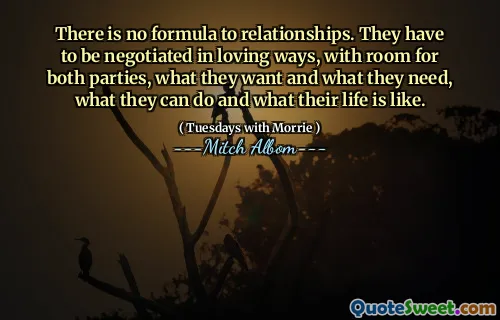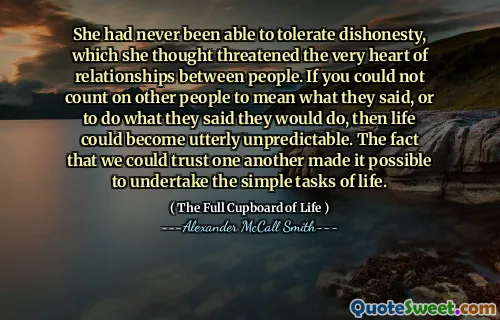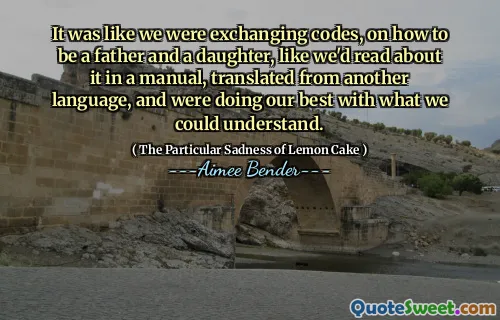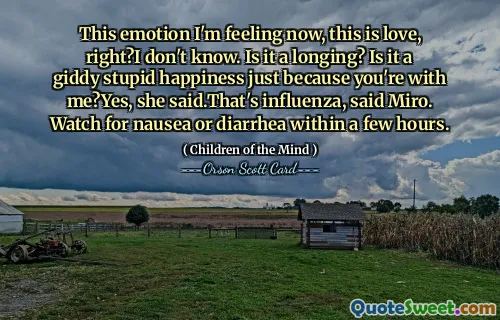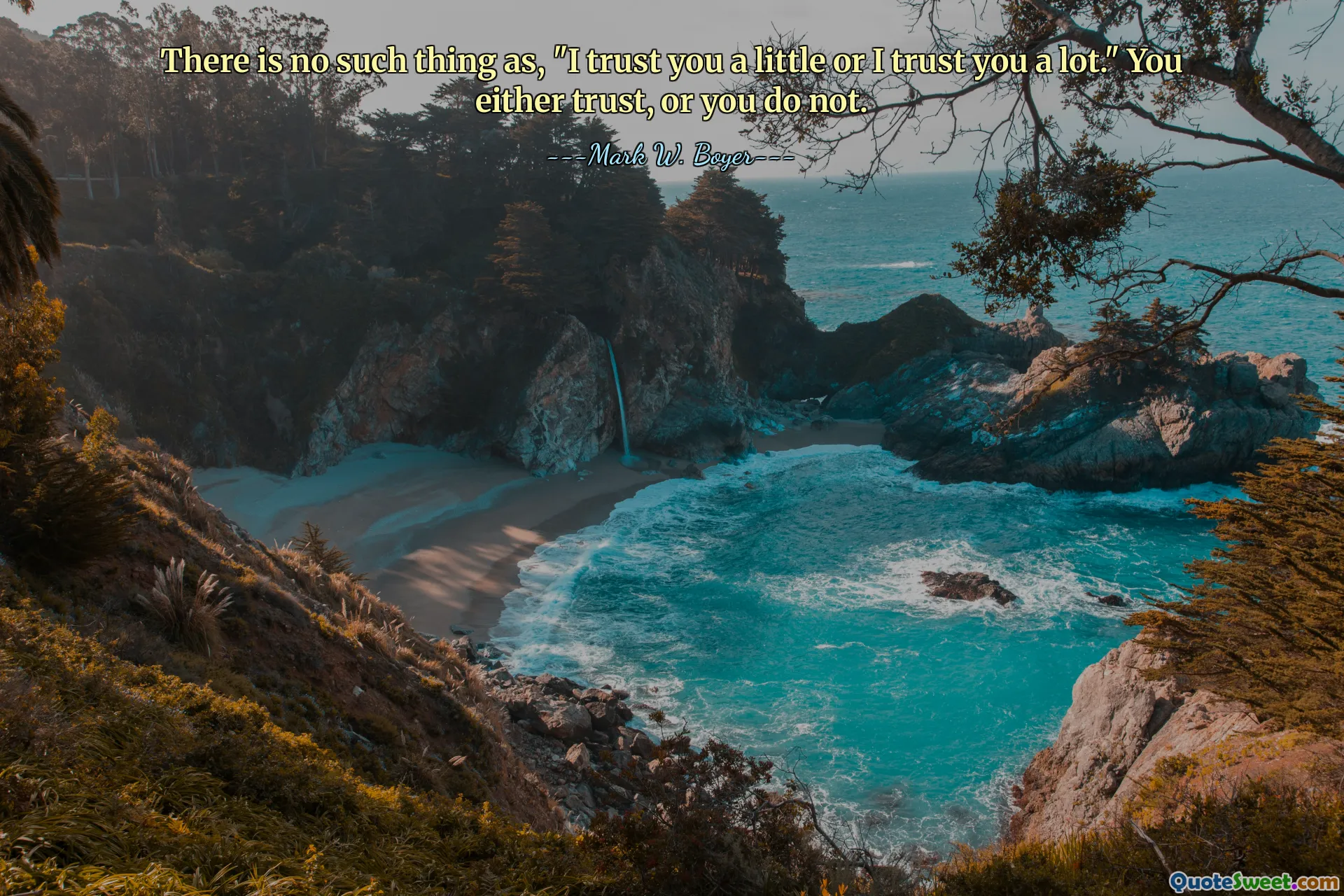
There is no such thing as, "I trust you a little or I trust you a lot." You either trust, or you do not.
Trust is a fundamental aspect of human relationships and interactions. This quote by Mark W. Boyer challenges the common notion that trust exists on a spectrum, suggesting instead a binary perspective: you either trust completely or not at all. The idea presented compels us to think about trust as a wholehearted commitment rather than a conditional or fractional judgment. When we trust, it means placing our confidence and reliance fully in someone or something without reservation. On the other hand, doubts and hesitations imply a lack of true trust. This perspective can encourage greater clarity in how we approach relationships — be they personal, professional, or social. Rather than attempting to measure or calibrate the degree to which we trust, it could be healthier to openly acknowledge our level of trust or our lack thereof. The risks and rewards of either stance become clearer, potentially strengthening communication and expectations. Viewing trust as absolute might also inspire individuals to nurture and protect this precious bond more consciously. However, it’s worth noting that while the idea is powerful conceptually, in everyday life, trust can appear more nuanced, influenced by experiences and circumstances. Nonetheless, embracing this clear-cut perception might serve as an ideal or a goal to aim for, pushing us to act more sincerely and consciously when offering trust to others.







